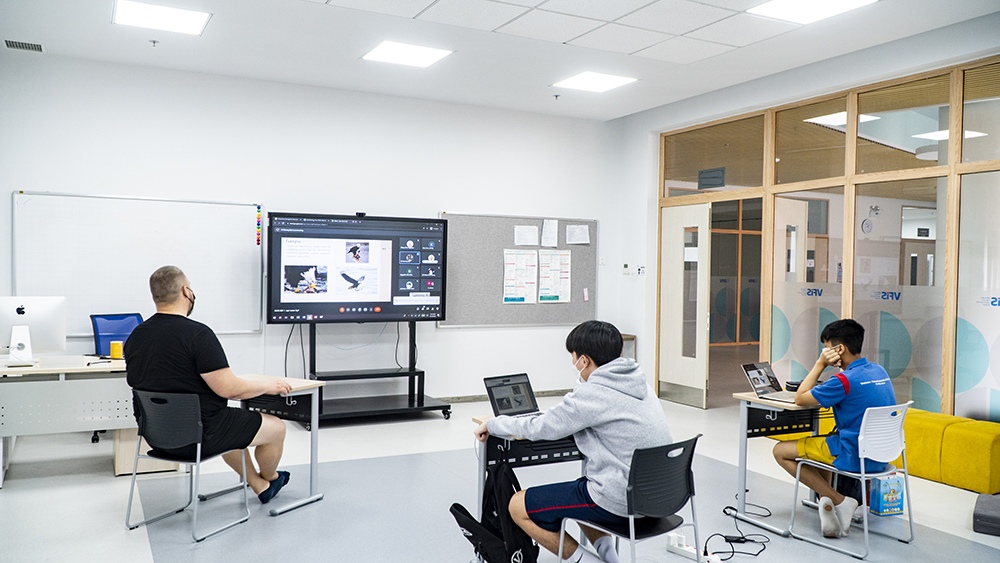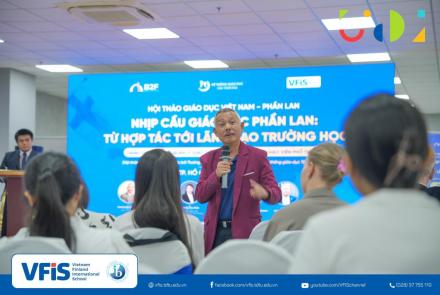What should teachers teach students after the pandemic?
Covid-19 pandemic has affected our lives in every aspect, even education. Now, let’s listen to our Head of school’ s sharing, Ms. Sanna Manner, about the difficulties students confront as well as the most important thing the school needs to prepare for their students to easily adapt to the uncertain future ahead.
In your opinion, what are the problems/difficulties students faced during the recent Covid-19 pandemic?
- Ms. Sanna: Online learning and social isolation cause problems for children and youth. For some students, online learning is fine. They are motivated, independent, and prefer working alone to working in a group, but most students find it difficult and demanding. It is hard to sit in front of the screen the whole day, though the teachers do their best to make the lessons interesting. Studying online requires a peaceful study room, good internet connection, and computer, a regular daily program with meals, breaks, and physical activity. It is hard to provide suitable circumstances, if there are several children at home at the same time, parents are working or struggling with financial problems. Even if the circumstances are perfect, students may lose their motivation.

On the bright side, does the pandemic also bring valuable lessons for students as well as everyone?
- Ms. Sanna: It is hard to see anything positive in this, but for sure some students have found new strengths in themselves. They have realized that they are good at studying individually and in lucky cases the family members have come closer to each other after spending a lot of time at home. Many students have better IT skills after this and it will benefit them, of course.

As a Finnish educational expert and a Head of School, in your opinion, after 2 years of the pandemic, what should teachers teach students in the future life? Should schools also change anything in the current teaching method? At VFIS, How have you and your teachers done that?
- Ms. Sanna: In Finland, we made a big change in the National Core Curriculum for basic education some years ago. A quote from the Finnish National Core Curriculum (2014) The new core curriculum places an emphasis on transversal competences in instruction. A changing society demands more and more transversal skills and competences. Therefore it is important that each subject promotes transversal competences.
The aims set for transversal competences include:
* Thinking and learning to learn
* Cultural competence, interaction and self-expression
* Taking care of oneself and managing daily life
* Multiliteracy
* ICT competence
* Working life competence and entrepreneurship
* Participation, involvement and building a sustainable future
We can not imagine what kind of knowledge the students need in the future, we can teach them what we find important now, but by teaching them also these transversal competences, we help them to manage better in different circumstances.
In Finnish schools and in VFIS, we are teaching the children to take responsibility for their own learning, we support them when they are struggling, we help them to find their strengths and motivation, we give them time and space to experiment, fail and succeed. We help the students to find the joy of learning and it for sure will help them in the future.





